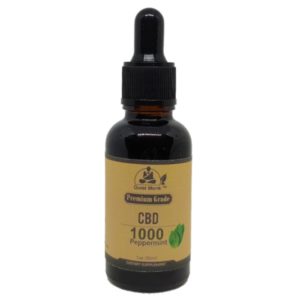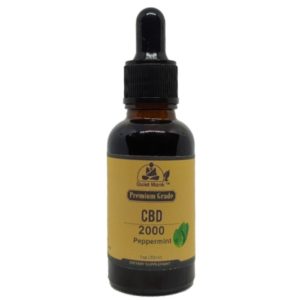
The interest in CBD primarily stems from its purported health advantages, particularly in alleviating anxiety symptoms. Despite these claims, the scientific community in Canada is still in the early stages of determining the full spectrum of benefits and drawbacks of CBD oil in treating anxiety. It’s crucial for the public to approach this subject with an informed perspective, recognizing both the potential benefits and the unknowns surrounding CBD oil’s impact on human health and potential side effects.
This quick little guide is designed for those considering CBD as a tool for managing anxiety. We delve into how CBD functions, its possible roles in anxiety management, the duration it takes to exhibit effects, and a balanced view of its benefits and drawbacks.
Potential for Worsening Anxiety with CBD Oil:
Pure CBD or Broad-spectrum CBD oil should not aggravate anxiety. However, full-spectrum products containing THC might increase anxiety symptoms, suggesting a switch to THC-free options.
Mechanism of CBD Oil in the Body
CBD influences the endocannabinoid system (ECS) through its interaction with ECS receptors, which function like cellular locks. The primary receptors in this system are CB1 and CB2. CB2 predominantly affects the immune system and inflammatory responses, while CB1 is more influential in brain functions.
Pre-clinical studies have focused on the effects of cannabinoids like CBD on CB1 receptors, observing anxiolytic-like responses potentially due to interactions with GABA, a neurotransmitter. However, these studies are predominantly animal-based, and more human research is needed to conclusively establish CBD’s efficacy for anxiety.
CBD Oil’s Role in Anxiety Management

CBD oil’s potential in managing anxiety may lie in its interaction with CB1 receptors and its capacity to maintain GABA levels, a neurotransmitter that helps reduce brain activity. There are several theories about how CBD might aid anxiety relief, but conclusive evidence is still forthcoming.
To maximize the benefits of CBD, adopting healthy lifestyle habits alongside its use can be beneficial in coping with anxiety.
Duration for CBD Oil’s Effectiveness in Anxiety Relief
The onset of CBD oil’s effects varies based on the method of administration. Sublingual application and vaporization are among the fastest ways to experience its effects. Conversely, edible products like gummies, which undergo digestive processing, have a delayed and diminished impact due to the first-pass effect. Topical CBD products are generally not recommended for anxiety relief, as there is little evidence to support their efficacy, and they do not enter the bloodstream.
It’s important to note that the information in this article is not medically verified, and more studies are needed to confirm the relationship between CBD and anxiety relief.
CBD Oil’s Efficacy in Various Anxiety-Related Conditions
- Panic Disorder: Preliminary research indicates potential benefits of CBD in managing panic disorders, with reduced panic responses observed. These effects may involve serotonin regulation, but further human studies are necessary for confirmation.
- Social Anxiety Disorder: A 2011 clinical study demonstrated that CBD could reduce anxiety in individuals with social anxiety disorder.
- Post-Traumatic Stress Disorder (PTSD): Several studies suggest CBD’s effectiveness in addressing PTSD symptoms, primarily through aiding fear extinction.
- Chronic Stress: Both animal and human studies have shown CBD’s potential in mitigating chronic stress responses, with CBD performing comparably to certain prescription medications in some cases.
Weighing the Pros and Cons of CBD Oil for Anxiety
Before turning to CBD for anxiety management, it is vital to consider its potential benefits and drawbacks.
Pros
- Natural Source: CBD in Canada is derived from hemp, with minimal processing compared to traditional pharmaceuticals, often from organically grown sources.
- Fewer Side Effects: Compared to standard anxiety medications, CBD is generally associated with fewer adverse effects and lacks the addictive potential of marijuana.
Cons
- Regulatory Differences: Unlike other drugs, CBD’s regulation under Health Canada is less stringent, leading to variability in product quality and claims.
- Possible Side Effects: While generally having fewer side effects, CBD users have reported issues like gastrointestinal disturbances, fatigue, appetite changes, dizziness, and dry mouth. More research is needed to fully understand these effects.
Ease of Use: CBD is versatile, available in forms suitable for both discreet and open usage, from edibles to sublingual drops. However, not all CBD products are of equal quality, and users should seek reputable sources and verify third-party lab results for safety and content accuracy.
Remember to consult with your health care professional before using CBD.


